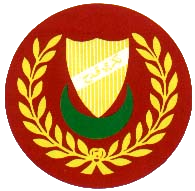|
|
| Line 14: |
Line 14: |
| | ---- | | ---- |
| | <br> | | <br> |
| − |
| |
| − |
| |
| − |
| |
| − | ==Government of the Republic==
| |
| − |
| |
| − | ===Slab I. - Public Law===
| |
| − | *1)No privileges, or statutes, shall be enacted in favour of private persons, to the injury of others contrary to the law common to all citizens, and which individuals, no matter of what rank, have a right to make use of
| |
| − | *2)The same rights shall be conferred upon, and the same laws shall be considered to have been enacted for all the people residing in and beyond Agyr, that have been enacted for good and steadfast Melite citizens.
| |
| − | *3)The five strata of the Republic are two high: the Senate, the Patricians; and three low: the Equites, the Plebeians, and the Proletarii.
| |
| − | *4)When a judge, or an arbiter appointed to hear a case, accepts money, or other gifts, for the purpose of influencing his decision, he shall suffer the penalty of death
| |
| − | *5)When a magistrate employs their authority unlawfully they are to be removed from office.
| |
| − | *6)No decision with reference to the life or liberty of a Melite citizen, not covered in the laws, shall be rendered save by the vote of the Senate.
| |
| − | *7)If anyone should stir up war against his country or delivers a Melite citizen into the hands of the enemy, this is a capitol crime, and they shall be punished with death
| |
| − | *8)Societies and associations which have the right to assemble, can make, promulgate, and confirm for themselves such contracts and rules as they may desire; provided nothing is done by them contrary to public enactments, or which does not violate the common law
| |
| − | *9)Every citizen has the right to speak freely and accept the consequences of their words.
| |
| − | <br>
| |
| − | ===Slab II - Government===
| |
| − | *1)The governing body of the Republic is the Senate Strata.
| |
| − | *2)The Senate Strata is composed of all legally elected members of the Patrician Strata who are elevated to magister offices. The full list of offices is located in Slab III.
| |
| − | *3)The Senate represents the Emperor and is the legislative body of the Republic. The Senate determines every aspect of realm governance through Conventus held in the Curia.
| |
| − | *4)Affairs of great importance shall not be transacted without the vote by the Senate, with whom rests the power to condemn citizens, dictate policy and to enact laws. Laws subsequently passed always take preference over former ones
| |
| − | *5)Changes to the law by addition, subtraction or alteration requires two thirds of all Senators to vote and be in favour of the proposal to pass.
| |
| − | *6)All writ of the Senate is unassailable. To oppose the Senate is to oppose the Republic and is a capitol crime.
| |
| − | *7)Conventus begins with the presenting of a matter for vote to either the Consul, Praetor or Quaestor. Should one of these magistrates accept the matter for vote they become the presiding magistrate and a list of Senators is drafted to represent each distinct side of the issue, the proposing Senator is given preference.
| |
| − | *8)The selected Senators are given till the next dawn or dusk, whichever is farthest, to confirm. Should the top most Senator decline or refuse to accept the placement the first to accept will be given the position, here after known as Orator.
| |
| − | *9)The Orators alternate presenting three statements: Opening, Rebuttal and Closing. The statements may not shift type until all Orators have presented that type. Orators have 3 days to present their statements.
| |
| − | *10)After the three statements are concluded for all Orators, or the presiding magistrate declares the debate closed, the Senate has two days to vote, naming the Orator who's position they favour. A simple majority wins.
| |
| − | *11)The Curia is open to all highborn. The low may listen to events recounted by speakers in the Forum Publicus where all decisions are declared and debates proclaimed as they occur.
| |
| − | *12)Those who do not vote or govern for more then one month consecutive are requested to explain themselves. If no acceptable explanation is presented in the subsequent month they are asked to step down from office.
| |
| − | *13)In times of conflict the senate may choose to provide the individuals with Imperium, usually the Imperator. Those with Imperium possess the authority to command the legions, using whatever strategy they see fit to bring about the will of the Senate without need to seek their approval.
| |
| − | <br>
| |
| − | ====Slab III – Offices====
| |
| − | The Republic recognizes the following offices, who's rolls are outlined below.
| |
| − | *1)The Aeldie is charged with organizing games and entertainment for the people of the Republic and running the Arena. They are elected once every three months, by referendum. They are elected once every three months, simple majority wins, all highborn may run and vote in the referendum.
| |
| − | *2)The Augur is charged with understanding the will of the Gods. Ensuring the people know the flow of the future, and perform the proper rituals to sanctify the public places. They are elected once every three months, simple majority wins, all highborn of the Old Gods may run and vote in the referendum.
| |
| − | *3)The Centurion is charged with commanding the Wolf legion sent out on mercenary pursuits. Ensuring the legion is successful; they have the final authority on matters of the legion during the expedition. Is elected upon the office becoming available. Said individuals can be removed from office by senatorial vote.
| |
| − | *4)The Consul is a member of the senate charged with guiding the republic through balance. Ensuring the senate is informed of foreign events by relaying the messages and conveying the senate's will to foreign powers. They are elected once every three months, simple majority wins, all highborn may run, the Senate may vote by secret ballet.
| |
| − | *5)The Imperator is charged with commanding the Legion. Ensuring the whole Legion is successful, and well supplied. They are expected to provide tactical expertise to accomplish the goals outlined by the Senate. Is elected from the highborn by the highborn with simple majority upon the office becoming available, can be removed from office by senatorial vote.
| |
| − | *6)The Legetus is charged with speaking to foreign powers. Ensuring the Republic is well represented, and smoothing out any tensions. They are expected to provide diplomatic expertise, and inform foreigners of Republic law. Is elected from the highborn by the highborn with simple majority upon the office becoming available, can be removed from office by senatorial vote.
| |
| − | *7)The Orators are Senators charged with debating in the Senate on a topic. Each side of a debate has one Orator, responsible for presenting arguments in turn, until its conclusion. The position changes from each issue to the next.
| |
| − | *8)The Praetor is charged with overseeing legal matters, providing impartial mediation to conflict and enforcing the laws on behalf of the Senate. They judge charges brought forward by others based on arguments presented by both parties. As the official speaker on international cases they are elected once every three months by majority vote. Any highborn may run for office and votes may be cast in secret by the Senate.
| |
| − | *9)The Quaestor is charged with maintaining the economy of the Republic. Ensuring the Republic is well fed and efficient, maintaining the state treasury and organizing its use with Senatorial order. They are elected once every three months, simple majority wins, all highborn may run and vote in the referendum.
| |
| − | *10)The Senators govern a single province in the Domain, administrating their territory on behalf of the Republic. They collectively make up the Senate, the legislative body of the Republic. Senate positions are determined by election. They are elected upon a province being available, simple majority wins, all highborn may run and vote in the referendum. If the position is a city or stronghold, only current senators are eligible to run. Positions are held until either: retirement, abdication for dereliction of duty, or the territory is lost. In the case where the territory is lost the senator retains their rank for one month, during which they automatically gain the title if the region is reclaimed. A person can run again for office in the future if they wish.
| |
| − | *11)The Tribune is charged with defending the interests of the Equites, Plebeians, and Proletarii Strata on the Senate. Ensuring the lower strata are provided for and treated well. They are the representative of the Senate with the Proletarii. The Tribune is elected from the high born by a joint simple majority vote of all strata in the capitol on the day of the election. They hold office for three months.
| |
| − |
| |
| − | ===Slab IV – Tax Laws===
| |
| − | *1)All citizens pay taxes to the Republic.
| |
| − | *2)Each province is an independent region taxed under the authority of the residing senator with a minimum tax rate of 10%, unless a lower percentage is approved by the Quaestor to aid in region maintenance. In the interests of transparency, no unreported ‘extra’ taxes shall be collected.
| |
| − | *3)Every Senator must set aside a portion of their province tax income toward the duchy. A flat tax of 25% shall be paid, regardless of the region population. The duchy shall send to the republic 75% of the gold collected by provincial tax. Any gold collected by the duchy that is not sent to the republic shall be used at the discretion of the Duke for activities not limited to: maintaining the army, the purchase of food or the sponsoring of tournaments.
| |
| − | *4)Duchy taxes collected by the republic shall be divided so that 75% is divided among all Patritians, 5% is distributed to the Consul, Praetor and Imperator to cover administrative costs inherent in their positions. The remaining 10% shall be collected by the Quaestor for inclusion to the realm’s treasury, who will be responsible for keeping the Republic's treasury. No administrative fees are authorized and the Quaestor will provide an itemized accounting of the realm treasury to the senate within two days of tax collection.
| |
| − | *5)An additional provincial tax share should be arraigned between region lords and knights serving their region. This amount will not be regulated by the republic but should reflect due appreciation of the services provided to a region by a knight.
| |
| − | *6)Expenditures of 500 gold or more from the treasury must be approved by the Senate.
| |
| − | *7)If the Quaestor is in doubt, the treasury must be handed over evenly to the Praetor, Imperator and Consul. The treasury will be returned to the Quaestor when they are no longer in doubt, or new Quaestor has been found.
| |
| − | *8)There is a Property Tax of 25% above 150 gold or bonds and a Wealth Tax of 25% above 300 gold or bonds.
| |
Pontifex of Flame
Overview
Text goes here
Empire of Sun
Overview
Some states have a military, Melhed's military had a state. This encompass the fundamental nature of the Imperial Government. Forged from an unpaid mercenary company the boisterous band had little interest in good governance leaving the plebeians to fend for themselves. Most offices retained a military cast, and the ceremonies were more at home in the camp than the halls of power. This slowly changed under the pressures of the south, molding and shaping the ad hoc structure to one of ridged, mechanical precision.
Emperor Tsu Sun loomed large during this time, even before he was proclaimed God-Emperor. He brought order to chaos and commanded absolute obedience through a combination of charisma and camaraderie. All power was centralized in his hands to the extent that there was nothing else. The Emperor was the state, the state was the Emperor. All served him, gladly, but that lack of autonomy left the nation at a loss during his passing at the end of the Second Invasion. Thus Aldo Unti was the second, and last to hold the Imperial office leading to the next form of the Republic.
For further information look in the Empire of Sun.
Republic of Melhed
Overview
In the Age of Blood citizens of Melhed were obliged, by dint of superior might, to bend their knee to the Emperor Tsu Sun, self-proclaimed God. As the Age wore on great changes were in the works, and when the Emperor vanished his successor, Aldo Unti began to make alterations that would give rise to the Age of Reason and creation of the Senate.
True believers within the Senate consider themselves rulers and servants: furthering the needs of the Republic by balancing the wants of the people with their needs, thus ensuring that the land is well governed and orderly. They may have the power to impose their will upon the citizens of the Republic, but they do so only in pursuit of a peaceful, equitable society. The more rhetoric filled speeches have claimed that cynicism and corruption are not allowed to take root in the Senate, that the collective voice of the Senate’s assembly speaks with flawless logic and complete compassion. Those with a more candid outlook comment that membership is available only to those of the Patrician Strata. Further the only real skill a Senator ever displays is the ability to entice their similarly wealthy contemporaries to vote for them.
The truth remains somewhere between. The Senate has its flaws, despite what the fervent champions will claim, but so too does it have its strengths which the detractors will ignore. It is true, the Senate is prone to lethargy and self interested corruption, yet despite this the Senate allows an avenue of discussion, and open possibilities unrivaled. No matter one's position on the utility of the Senate none can deny that under the Republic system Melhed has become a stable and prosperous nation, and one of the most powerful states in the whole of Beluaterra.
For further information look in the Republic of Balance.
Kingdom of Greater Melhed
Overview
The closing days of the fifth invasion saw Maharshl Yeux Serpentis frustrated at the aimless talk and laissez faire attitude of his fellows. Motivated by a zeal lacking in the more established elite he lead a successful rebellion and abolished the Senate before proclaiming the Kingdom of Greater Melhed in the honour of Emperor Tsu. King Yeux was quick to consolidate his power with the founding of a new dynasty through marriage to Lady Maya Tandaros, known as the Wrath of Iku-Turso to the peasants, who bore him a son named Hector Serpentis-Tandaros. Once again forging the Patricians into a military hierarchy efforts were made to temper his new weapon with renewed conflicts among his neighbours.
These efforts ultimately failed, with agitation within and military defeats from without setting the once great nation crumbling. After the first disastrous war the capitol, Agyr, was lost and the nation never recovered. By the end of the Age there was nothing save the vestiges of an exiled government scraping by in the city of Mhed. And so ended the tale of Melhed where it began.
For further information look in the Tyranny of Wolf.



